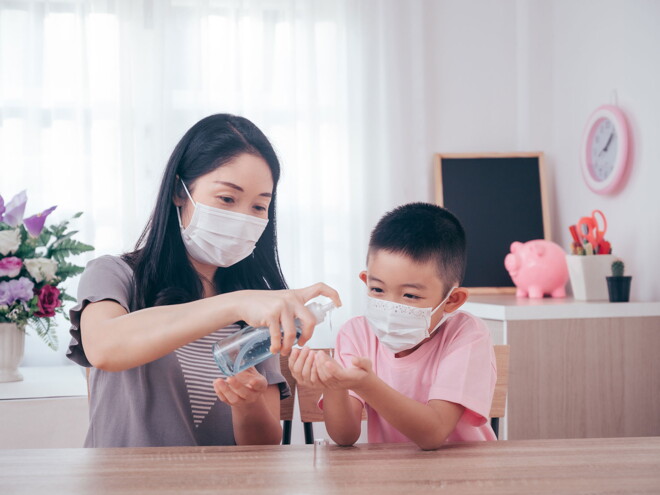
Understanding Monkeypox: What Parents Need to Know
As parents, safeguarding your family's health is always a top priority. Recently, monkeypox, now known as Mpox, has been making headlines, and it’s natural to have concerns. Let's break down what you need to know about this virus, its symptoms, and what you can do to protect your family.
What is Mpox?
Mpox, formerly known as monkeypox, is a disease caused by the monkeypox virus, which belongs to the Orthopoxvirus genus. This virus has an incubation period of 3 to 17 days, meaning symptoms can appear within this time frame after exposure.
What Are the Symptoms of Mpox?

Mpox symptoms usually appear in two distinct phases:
- Rash: The most recognizable symptom of Mpox is a rash that evolves through several stages. Here’s what you can expect:
- Stage 1: Macule – The rash begins as flat, red spots, lasting for 1-2 days.
- Stage 2: Papule – These spots become raised and firm, resembling small bumps, and last for 1-2 days.
- Stage 3: Vesicle – The bumps turn into blisters filled with clear fluid, lasting for 1-2 days.
- Stage 4: Pustule – The blisters fill with pus and remain for 5-7 days.
- Stage 5: Scabs – The spots eventually crust over, forming scabs that last for 7-14 days.
- The rash can be painful or itchy and is typically found on or near the genitals, anus, hands, feet, chest, face, or mouth. It usually appears 1-4 days after a fever and can last between 2-4 weeks.
- Flu-like Symptoms: Alongside the rash, your child may experience symptoms similar to the flu, such as:
- Fever
- Headache
- Muscle aches and backache
- Swollen lymph nodes
- Respiratory symptoms (sore throat, nasal congestion, or cough)
- Chills
How Can You Get Infected?
Mpox spreads primarily through direct contact with the skin lesions or respiratory secretions of an infected person or animal. It can also be contracted by touching contaminated objects or by traveling to areas with a known Mpox outbreak.
How is Mpox Diagnosed?
If you suspect that your child might have Mpox, it's crucial to consult with your doctor. Diagnosis is typically confirmed through a PCR test of a skin lesion.
What Should You Do If You Suspect Mpox?
If your child shows symptoms of Mpox, here’s what you should do:
- Isolate: Keep them isolated for at least 21 days or until their skin lesions have healed and the scabs have fallen off.
- Consult Your Doctor: Seek medical advice immediately for proper care and to prevent the spread of the virus.
While Mpox can be concerning, being informed and vigilant can help you protect your family. Mpox is often self limiting meaning that it will go away by itself most of the time. Always watch for symptoms, and if you suspect your child may have been exposed, take immediate action by isolating them and consulting your doctor. Your family's health and safety are always the top priority!
Source: Philippine Society For Microbiology And Infectious Diseases, 2024
By: parenTeam Content Team









